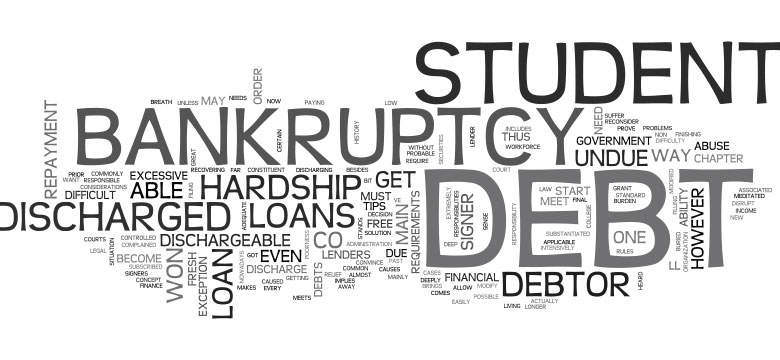Student loan debt is more difficult than most debt to discharge. It also ranks second among causes of consumer debt, behind mortgages and ahead of credit cards with over 44 million U.S. borrowers owing roughly one and a half trillion dollars in student loans.
What separates student loans from other forms of debt has traditionally been bankruptcy; while credit card and mortgage debt are discharged in bankruptcy, student loan debt generally is not. There are some who say this exception is to prevent recent college graduates from declaring bankruptcy to take advantage of student loan lenders. Whatever the case, our Cleveland Bankruptcy Attorneys have found there are certain circumstances in which student loan debt can be discharged in bankruptcy.
Even if you’re just weighing the pros and cons, Cleveland Bankruptcy Attorneys can provide you with all the help you need. Set up a free consultation by calling (216) 586-6600, or filling out our online form today.
Financial Hardship Can Result in Your Student Loans Being Discharged
The specific circumstances that are required to discharge your student loans generally revolve around financial hardship. If you can prove your situation matches particular criteria, you may be able to get all or part of your student loan debt discharged. The requirements are laid out in the Brunner test, which assesses whether paying back your student loans in total would cause you undue hardship.
What Does Undue Hardship in Paying Back Your Loans Look Like?
All circumstances are unique, but the Brunner test examines three factors when considering whether your student loans can be forgiven. These standards are:
- Extenuating circumstances causing the hardship. In other words, commonplace complaints such as a weak job market will not suffice in proving that your hardship was “undue.”
- Likelihood of continuity. You must show that the circumstances causing your hardship are likely to continue, causing your loan payments to be unduly burdensome for the foreseeable future.
- Good faith efforts to make your payments. You must show that you have made an effort to make your payments. This could involve something as simple as showing that you’ve tried working out a payment plan.
It’s important to note that it is in your best interest to contact a skilled bankruptcy attorney to learn more about student loans in a bankruptcy. A Cleveland bankruptcy lawyer can ensure that your rights are protected and fight for a favorable outcome.
How Can You Try to Get Your Student Loans Discharged in Bankruptcy?
To have your student loan debts discharged in bankruptcy, you’ll need to file a bankruptcy claim to begin with. To do so, you’ll need to exhaust your other payment options. Call your lender or provider and inquire about income-driven payment plans or available forms of loan forgiveness. This will help to establish good-faith efforts to make your payments, which is an aspect of your case the court will most likely examine. To ensure you’ve taken all the necessary and proper steps before filing a bankruptcy claim, it’s a good idea to talk to an attorney.
Once you’ve filed your bankruptcy claim, you must submit an additional Adversary Proceeding with the bankruptcy court. This is your claim that repaying your student loans would cause undue hardship. Once your Adversary Proceeding is filed, you will have to defend your case based on the criteria outlined in the Brunner test.
Let a Skilled Attorney Help You With Your Bankruptcy Proceedings Today
If you’re dealing with bankruptcy in any form, the most important thing is to make sure that you’re adequately represented. Bankruptcy has the potential to affect the rest of your life, and you want to make sure everything goes as it’s supposed to. Bankruptcy lawyer Cleveland Bankruptcy Attorneys at Cleveland Bankruptcy Attorneys can assist you throughout the bankruptcy process and help you achieve your best possible outcome.
Call us at (216) 586-6600 today to schedule your free consultation.

